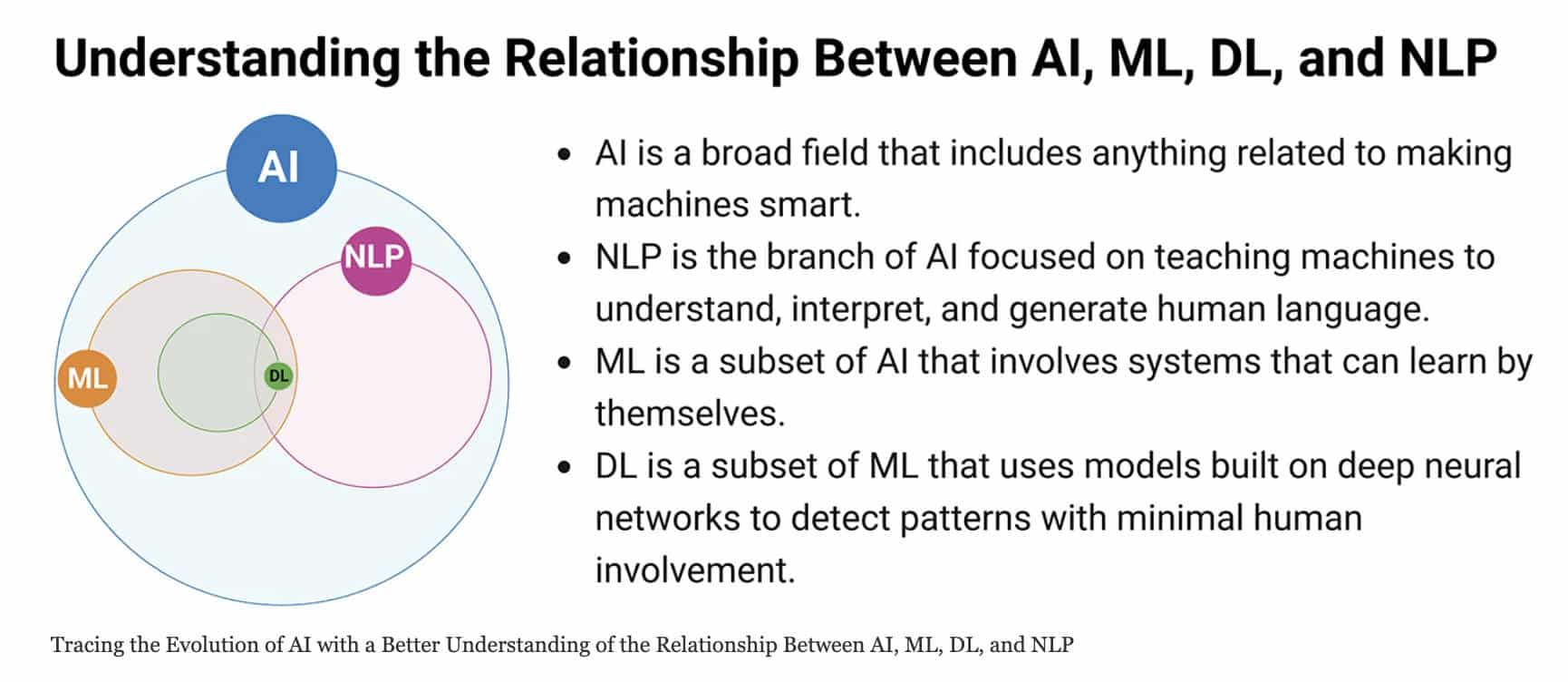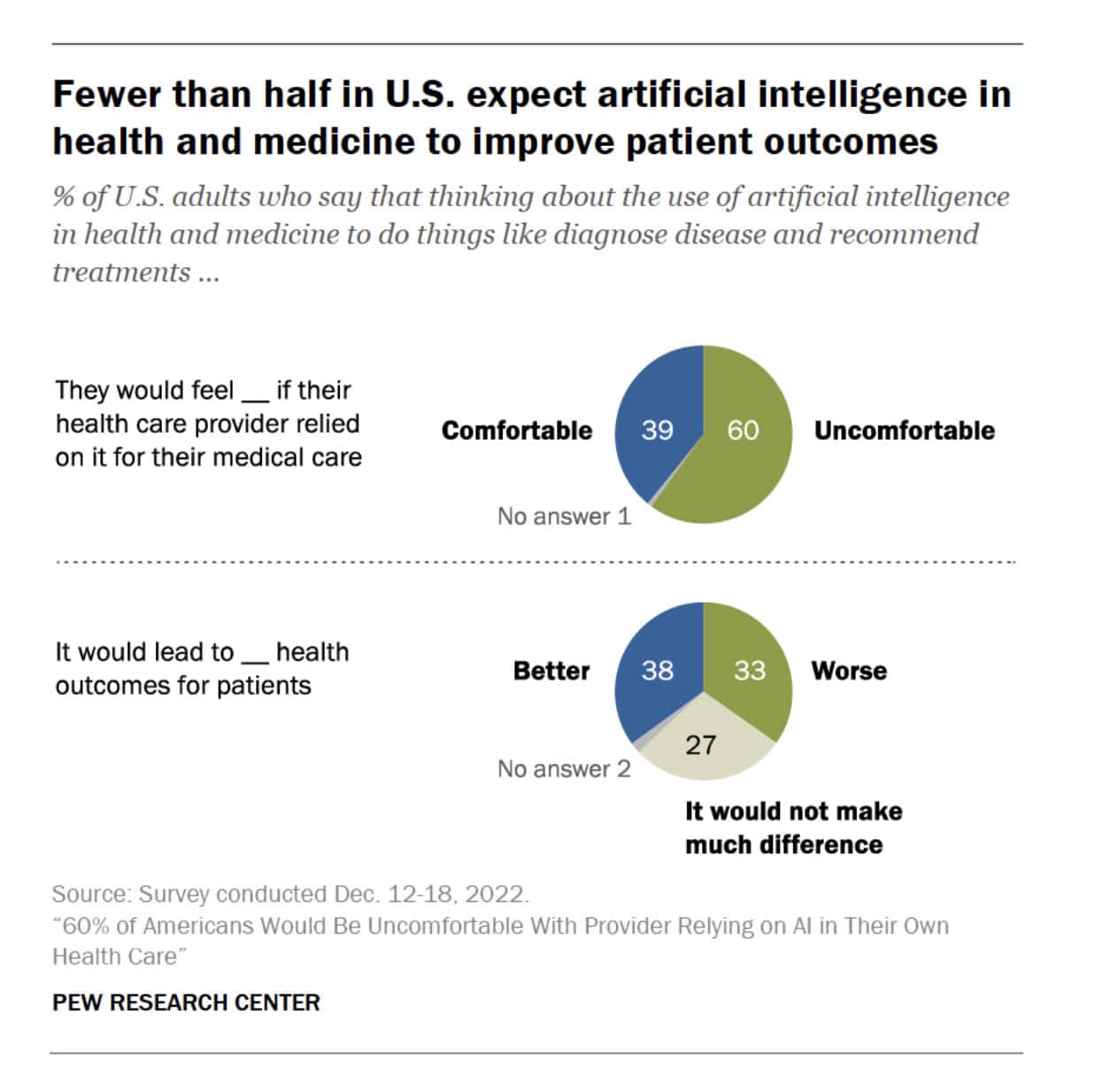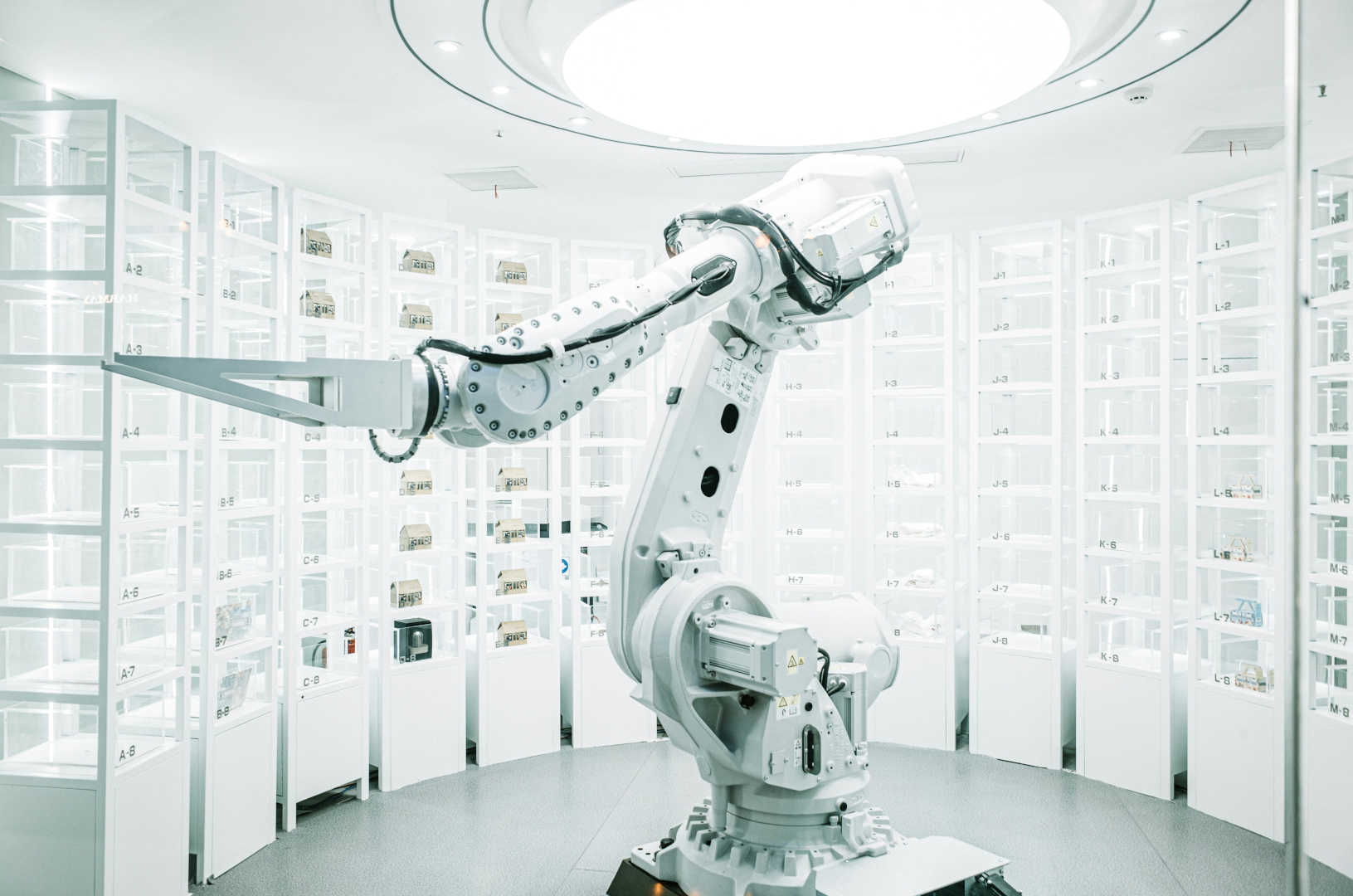The Revolution in AI-Powered Diagnostics in Advanced Medical Devices
Artificial Intelligence (AI) is rapidly igniting a significant transformation in healthcare. AI-powered diagnostics in advanced medical devices are revolutionizing diagnosis, treatment planning, medical imaging, and overall patient care.
By harnessing the power of AI, medical devices can analyze large data sets with unprecedented accuracy and efficiency, leading to earlier diagnoses, more personalized treatment plans, and improved healthcare outcomes. Let’s look at the foundations of this revolution and rapid change.
Artificial Intelligence vs Machine Learning
While the terms artificial intelligence (AI) and machine learning are often used interchangeably, they are not exactly the same. AI is a broader term encompassing the concept of intelligent machines that can mimic human cognitive functions like deep learning and problem-solving. In the blog post, we’re referring to AI in the context of medical devices that utilize various techniques, including machine learning, to achieve intelligent behavior.
Machine learning (ML) is a specific branch of AI that focuses on developing algorithms that can learn from data without explicit programming. These algorithms are trained on massive datasets and can improve their performance over time.
To complicate matters further, AI encompasses deep learning and natural language programming concepts, too. The graphic below shows the difference between the different subsets of AI.

For the purposes of this article, we say that AI encompasses the overall intelligence capabilities of medical devices, and machine learning is the specific technique that powers that intelligence through learning from data.
AI Technology for Enhanced Disease Detection
Traditional methods of detecting disease often rely on human interpretation of medical images, such as X-rays, MRIs, and CT scans. While highly skilled radiologists play a crucial role in diagnosis, these methods can be time-consuming and susceptible to human error.
On the other hand, artificial intelligence algorithms can improve results from medical imaging by analyzing images with exceptional speed and precision. Trained on massive datasets of labeled images, these algorithms, often powered by deep learning techniques, can identify subtle abnormalities that might escape the human eye, leading to earlier and more accurate diagnoses.
For instance, in February 2024, the European Radiology Journal published one case study that found AI has shown significant promise in improving breast cancer screening results for early detection.
Studies have demonstrated that AI algorithms can analyze mammograms with superior accuracy compared to traditional methods, potentially leading to earlier breast cancer interventions and improved patient outcomes.
Similarly, in stroke diagnosis, AI can analyze CT scans to differentiate between different stroke types with remarkable speed and accuracy. This allows for faster and more targeted treatment, minimizing potential brain damage.
Beyond diagnostic imaging, companies are integrating artificial intelligence into devices like pacemakers. These AI-powered pacemakers can monitor heart rhythm and detect arrhythmias in real time, prompting interventions to prevent strokes and other life-threatening complications.
Individualized Health Care: AI for Personalized Treatment Planning
By leveraging machine learning techniques, AI can analyze vast amounts of patient data to identify patterns and correlations that may not be readily apparent to human healthcare professionals.
AI’s findings can transform health care with personalized treatment planning. In addition, AI’s use of predictive analytics can add another layer to treatment planning beyond diagnosis and help predict future outcomes for better treatment planning.
Traditionally, treatment decisions are based on a patient’s medical history, symptoms, and some limited genetic information. However, AI can unlock a new level of personalization by incorporating a wider range of data points. This includes:
Electronic Health Records (EHRs): AI can analyze a patient’s digital health medical history, including past diagnoses, medications, and treatment responses.
Precision Medicine and Genomic Data: By analyzing a patient’s genetic makeup, AI can identify potential risk factors for certain diseases and predict how a patient might respond to specific therapies.
Real-time Device Readings: Advanced medical devices can generate a wealth of real-time patient health data. AI can analyze this data to monitor treatment progress and identify potential complications early on.
This comprehensive analysis allows healthcare providers to develop personalized treatment plans tailored to each patient’s unique needs and genetic makeup. Studies have shown that AI-powered treatment planning can significantly improve treatment accuracy.
By leveraging AI, healthcare professionals can move away from a “one-size-fits-all” approach and provide individualized care for better patient outcomes.
AI for Streamlining Medical Workflows
From primary care to specialist treatment, the potential benefits of AI extend beyond diagnosis and treatment planning. AI can also automate specific medical tasks, streamlining workflows and potentially reducing human error.
For instance, devices can use AI algorithms in the following ways:
Automate image analysis: AI can automate medical image analysis in the medical imaging sector, freeing up radiologists’ time to focus on complex cases and patient interaction.
Generate preliminary reports: AI can analyze patient data and generate preliminary reports, helping doctors with clinical decisions and allowing them to focus on medical diagnosis and treatment decisions.
As artificial intelligence evolves, we can expect even more sophisticated applications, potentially leveraging natural language processing to analyze patient medical records and generate personalized reports.
Identify potential complications: AI can analyze patient monitoring data from devices to augment risk assessment. By flagging potential complications early on, AI can help medical teams provide prompt intervention, improving patient outcomes.
However, it’s important to acknowledge that adopting AI in the healthcare industry also presents challenges. One key concern is the “explainability” of AI decisions. Sometimes, it can be difficult to understand how AI algorithms arrive at their conclusions.
This lack of transparency can raise concerns about accountability and trust in AI-powered devices. Developers are actively addressing this challenge by creating more transparent artificial intelligence models that can explain their reasoning behind specific recommendations.
The Patient POV – An Unexpected Obstacle?
While healthcare providers and medical device companies see large potential in AI-powered diagnostics, one challenge to be aware of comes from the end “customer” – the patient.
A study by the PEW research center in 2023 showed that the public is not convinced that AI lives up to (what many see as) the hype. The Pew report states:
“The survey finds that on a personal level, there’s significant discomfort among Americans with the idea of AI being used in their health care. Six-in-ten U.S. adults say they would feel uncomfortable if their health care provider relied on artificial intelligence to diagnose disease and recommend treatments; a significantly smaller share (39%) say they would feel comfortable with this.”

Moving Ahead
The potential applications of AI in healthcare extend far beyond medical devices. AI is also revolutionizing drug discovery, with researchers leveraging its capabilities to identify new drug targets and streamline development.
The merging of artificial intelligence with advanced medical devices is also transforming the regulatory landscape. Keeping pace with the changes can be a challenge for medical device companies.
At Galen Data, we understand the unique complexities of managing data for AI-powered devices. Our secure and scalable cloud platform uniquely meets the needs of this industry, ensuring regulatory compliance while empowering innovation.
Partner with Galen Data today to:
Develop a secure and scalable data management plan: Our platform offers robust data security features and ensures scalability to accommodate the growing demands of your AI initiatives.
Leverage our expertise in medical device data and compliance: Our team has extensive experience navigating the regulatory landscape for medical devices, including those incorporating AI. We can help ensure your devices meet all data privacy and security requirements.
Focus on innovation while we handle the infrastructure: Let Galen Data handle the complexities of data management, freeing your team to focus on developing cutting-edge AI-powered devices that revolutionize patient care.
Schedule a call today to discuss your needs and see how Galen Data can help you store, manage, and secure your medical device data at scale.
By embracing AI-powered diagnostics and partnering with a trusted data management solution like Galen Data, medical device companies can unlock the full potential of this transformative technology. Together, we can usher in a new era of personalized medicine, leading to earlier diagnoses, more effective treatments, and improved patient outcomes.






